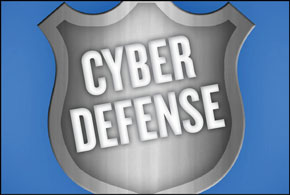Last year, when Edward Snowden leaked a series of highly classified National Security Agency (NSA) documents, it forever changed the face of cyber-security. Now, ThreatTrack Security has released the findings of a survey that indicates that defense firms—among the most careful and conscientious about security—are significantly changing their security practices as a result of the incident.
The survey examined the attitudes and practices of 100 IT and security managers and staff at defense contractors handling data for the U.S. government. Nearly two-thirds (63 percent) indicated that they hold either secret, top secret or confidential clearances. Remarkably, 27 percent do not hold clearances, despite having access to at least some confidential data.
The effects of the Snowden incident are rippling through these companies. Three-quarters of the respondents reported that their organizations have changed their cyber-security policies following his disclosures. A majority (55 percent) said their employees now receive more cyber-security awareness training; 52 percent have reviewed or re-evaluated employee data access privileges; 47 percent are on higher alert for anomalous network activity by employees; 41 percent have implemented stricter hiring practices; and 39 percent reported that their own IT administrative rights have been restricted.
Despite these upgrades, security professionals surveyed believe that further improvements are necessary. Although 88 percent of respondents believe they receive the necessary support, 62 percent said their organization remains vulnerable to advanced persistent threats (APTs), targeted malware attacks and increasingly sophisticated cyber-crime and cyber-espionage tactics.
The biggest hindrances to stronger security, they reported, are the sheer volume of malware attacks and the lack of funds to obtain the necessary tools. In addition, more than one-quarter of respondents indicated that they have difficulty finding security personnel with the required expertise and skills.
According to the report, the leading causes for malware infections and cyber-security breaches include clicking on a malicious link in a phishing email (40 percent at defense firms versus 56 percent at other enterprises); allowing a family member to use a company-owned device (14 percent versus 45 percent); and visiting pornographic Websites (13 percent versus 40 percent).
The good news? A majority (54 percent) of security professionals at defense firms haven’t been asked to remove malware from an executive’s computer or mobile device. At non-defense companies, 56 percent said they have been forced to remove malware. In addition, only 8 percent of respondents said their company has failed to disclose a security breach to customers, partners and government agencies with which they have contracts.
ThreatTrack Security President and CEO Julian Waits, Sr., believes that the results demonstrate just how complex today’s cyber-security environment has become. “While defense contractors seem to have better security practices in place and they are more transparent than many companies in the private sector, they are finding the current cyber-threat onslaught just as difficult to deal with,” he said. “Well over half are concerned that they are vulnerable to targeted attacks and cyber-espionage, and given the type of data they are handling and storing … that number needs to get a lot smaller—and fast.”









